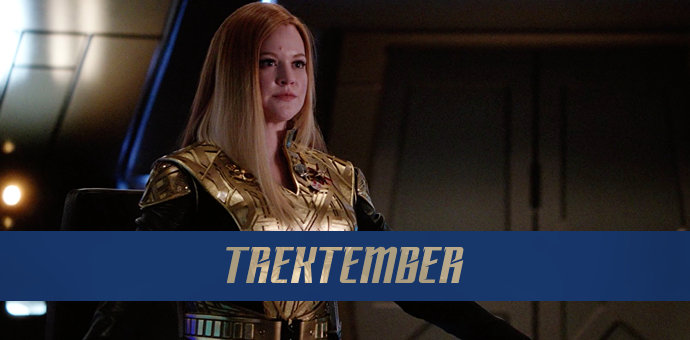Nothing says classic science fiction television quite like an obvious moral allegory, right? A close second would be the whole thing where you pretend a single city represents the culture of an entire planet. You gotta love it. These things were basically the calling card of every Star Trek series, and now we’re given a hefty dose of them once again by The Orville in “Majority Rule.” But lack of nuance doesn’t necessarily make for a poor story. Nay, if it did then Star Trek never would have survived. With a quick accepting of the convention, we can let sci-fi do what it does best and teach us something about ourselves.
Could This Actually Happen?
See, if science fiction is doing its job correctly, it will inevitably lead you to ask the question, “could this actually happen?” Whether it’s little green men landing on our planet or the technological ability to conjure up a cup of tea (Earl Grey, hot) out of thin air, we inherently want to know if the things that sci-fi deems probable actually are. So even though a society ruled entirely by social judgement might seem laughable on the surface, you can’t help but wonder if we’re closer to that than teleportation.
The obvious parallel to this story is social media, which literal billions of people now take part in. You no doubt clicked on this article from Twitter or Facebook, and may return there after reading. It’s a pervasive technology that certainly provides many helpful benefits, while of course including many pitfalls. But what the Orville crew encounters is something severely warped (no space pun intended). The entire justice system of this culture is ruled by mob mentality, with down votes not only being a potential death sentence, but an excuse for what appears to be legal prejudice, as we saw the lady in the café experience.
Lt. Alara: With so many voices at once, how do you filter out the truth?
Lysella: Well, my dad always says the majority are the truth. You always know what the majority wants. That’s what matters.
Yikes. Think of today’s internet-judgement culture. Would you want to be at the mercy of that? Certainly not. But if you’ve ever been in a heated discussion deep down in the comments section of a Facebook post, you know that escalation to a large scale can happen fairly easily. Essentially, this planet is just living on viral video, as Lt. Commander John Lamar quickly discovers. The most shocking aspect of this episode might be how commonplace Lamar’s video would seem on the internet today. And it nearly doomed him.
What the Heart is Capable Of
Scripture shows us that we all desperately long to fulfill the desires of our hearts. This fickle and often foolish thing beating inside our chests could rule us and destroy us if allowed to. As Jeremiah 17:9 illustrates rather bluntly, “the heart is more deceitful than all else, and desperately sick.” Clearly, if we were left to our own devices, we could certainly create a society ruled by swift social judgement. I’m not even convinced it would take all that long to happen.
I wish there had been more exploration of this dilemma within Lysella or John. “Majority Rule” sets up the conflict well, but admittedly doesn’t quite land the conclusion. There isn’t any lesson learned by our characters despite the narrow escape of this social kerfuffle. Sure, Lysella might bring a different perspective to her planet now, but her inner change is otherwise vague. John’s final actions reveal he’s seemingly unfazed, so what are we to draw from this? The Orville seems too often content with simply asking the question, and it shows here.
So, as the sweat is wiped off the brows of the crew and they hightail it out of there at warp speed to live out their next morality play, we’re still left to wonder. Can this actually happen? If the heart is capable of it, then the answer must be yes. But it’s worth noting that what saved John from his final judgement was his crew. This is a small, but pertinent picture of how a grace-filled community is more powerful, and more necessary in our lives than the judgement of the masses.
Now it’s back to your regularly scheduled social media scrolling. After this episode you may, if only briefly, think twice about your news feed. That urge to re-think? Yep, that too is another defining aspect of classic sci-fi. So, thanks for reading. And do please give this an up vote, would you?
• • •
Trektember is an annual series about Star Trek; this year, we’re examining the first seasons of Star Trek: Discovery and The Orville. For more information on this series, click here; or, to read every article from the beginning, click here!



1 comment